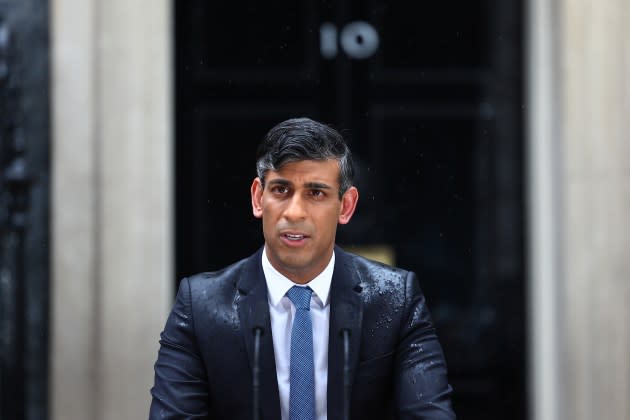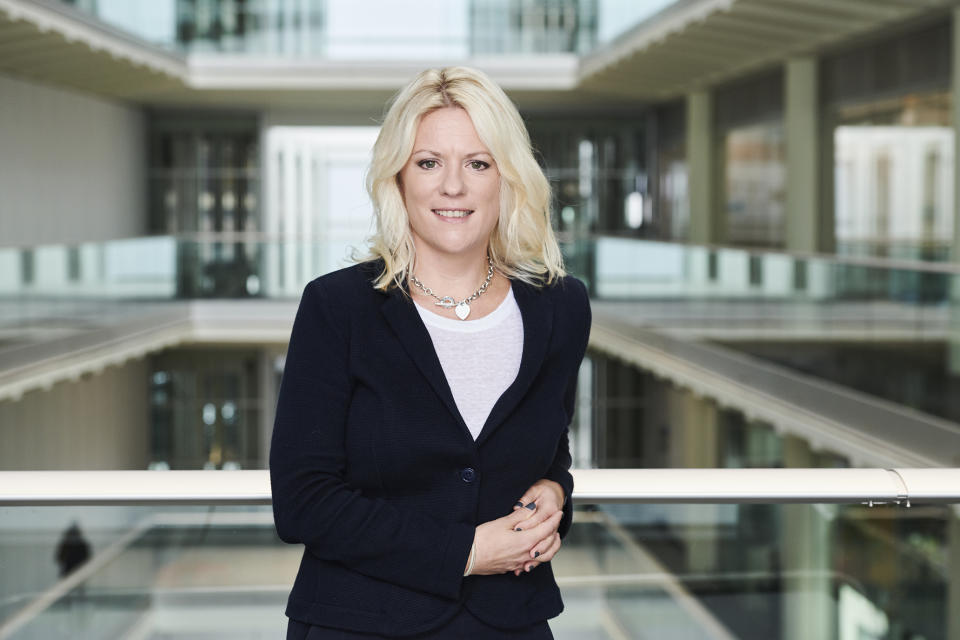UK News Networks Will Not Be Able To Counter Deepfakes On General Election Day, Says Head Of ITN

British news networks will be unable to counter dangerous deepfakes and misinformation swiftly on the day of the general election, the CEO of ITN has raised.
According to Rachel Corp, who has been speaking to the government for months about the dangers of AI in news reporting, there is “particular concern” around July 4 because of restrictive reporting rules that only apply to election day.
More from Deadline
Showrunner Industries Collaborating With AI Startup ScriptGen To Develop Writer Productivity Tools
Google EMEA Boss Urges Media To Go "Beyond The Headlines" In Reporting On AI
On that day, UK news networks are obliged to stop reporting the election in the way they have in previous weeks, and “all we can do is show leaders voting and dogs outside polling stations,” said Corp, who oversees the ITV, Channel 4 and Channel 5 news operations via ITN.
“If something emerges of Rishi Sunak high-fiving Vladimir Putin and it’s spreading then we can’t counter that, so there is a danger there,” Corp told the Deloitte and Enders Media & Telecoms 2024 and Beyond Conference in London. “We would therefore have to talk to regulators but there is not that instant thing of us coming in to counter [deepfakes]. I’m raising that as a flag but I don’t necessarily have a solution.”
Last year, Corp urged lawmakers to consider journalism within the AI regulation debate as the next UK general election drew near, citing issues regarding deepfakes.
One year on, Corp said “generative AI has changed the conversation,” and protecting news networks from deepfakes “shouldn’t just be left to news organizations,” she said.
She was speaking as ITN struck a deal with AI-protection platform Open Origins, which will give an ID to all of ITN’s 1.5 million archived news clips, proving “they are human-made and copyright compliant,” according to Corp. She said ITN remains open to working with OpenOrigins to safely license video content to others for specific tasks.
“Shallower fakes”

Corp also raised concerns about “shallower fakes,” citing that images can be manipulated in small ways.
For example, an image or video could be altered slightly to show someone scowling when they were in fact smiling.
“What that can do to the narrative is a problem so it’s part and parcel in our newsrooms to have to fact check,” added Corp.
Best of Deadline
TV Cancellations Photo Gallery: Series Ending In 2024 & Beyond
2024 Premiere Dates For New & Returning Series On Broadcast, Cable & Streaming
Sign up for Deadline's Newsletter. For the latest news, follow us on Facebook, Twitter, and Instagram.


